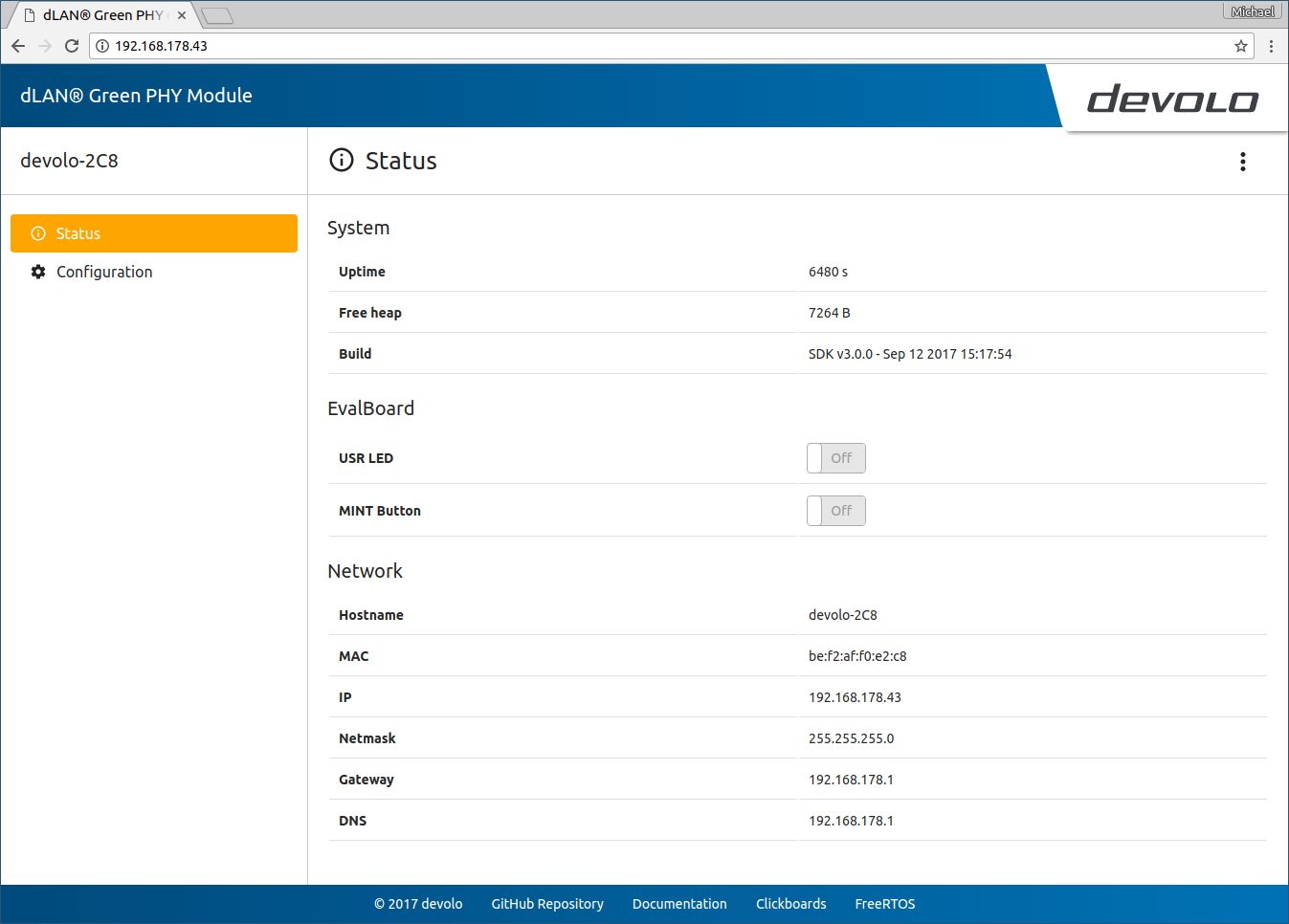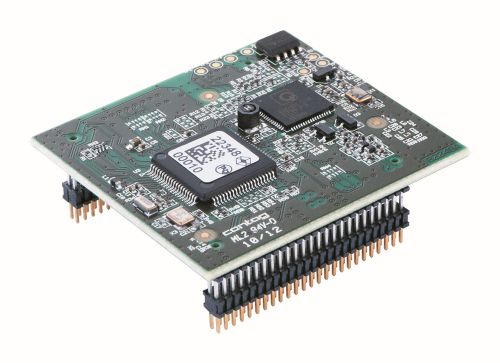This project contains the SDK for the devolo dLAN® Green PHY module.
It is ideal for installation in all electrical devices of a smart home. From the heating system to the refrigerator - Green PHY enables seamless integration into the networked home. The open standard makes smart energy applications, sensor solutions and automation systems efficient to set up and use. Another advantage: The dLAN® Green PHY module is particularly energy-saving and - compared to conventional HomePlug solutions - has reduced energy consumption.
The module contains a QCA7000 GreenPHY processor and a LPC1758 MCU. This project mainly covers the SDK for the MCU. The firmware for the GreenPHY is not part of this repository and must be obtained via another source (e.g. devolo support).
The following options are available within the QCA7000 devolo firmware package:
- iot-generic IoT generic, optimized for performance: 50561 off (SLAC off)
- iot-conform IoT over mains, optimized for conformity: 50561 on (SLAC off)
- emob-charger e-mobility use as charging station: SLAC in EVSE mode (50561 off)
- emob-vehicle e-mobility use as vehicle: SLAC in PEV mode (50561 off)
The SDK is based on LPCOpen v2.10 and FreeRTOS v10.4.1.
The dLAN® Green PHY module
This repository contains two FirmwareStandalone projects. The FirmwareStandalone projekt which starts at baseaddress 0x0 and the FirmwareStandaloneTFTP project which starts at baseaddress 0x10000 to leave space for the bootloader on 0x0 to 0x10000. The FirmwareStandalone therefor will override(!) an existing Bootloader while flashing. If you know about an existing bootloader on your Green PHY module and you want to keep the TFTP update function, the StandaloneFirmwareTFTP should be used. There are also binaries of the stock-firmware (v1.0.16) with the bootloader and FirmwareStandaloneTFTP included in the releases, which can be flashed via MCUXpressos GUI Flash Tool.
- HTTP server with webinterface
- TCP/IP stack with many protocols ready to use, e.g. DNS, DHCP, ICMP
- Green PHY and fast ethernet controller
- Many interfaces, e.g. SPI, GPIO, I²C, UART, USB and CAN
- Compatible to microBUS™ socket and MikroElektronika Click Boards
- dLAN® Green PHY module with a development board, e.g. the dLAN® Green PHY eval board II, or your own design
- MCUXpresso IDE
- JTAG-Debugger, recommended LPC-Link 2 with ARM-JTAG-20-10 Adapter
- Python3 (make sure py command is configured, e.g. linked to python3)
- beautifulsoup4 (use pip3 for installation)
- css-html-js-minify (tested for v2.2.2, not working with v2.5.5) (to convert HTML files for the WebUI) (use pip3 for installation)
-
Download the repository, following the Clone or download button's instructions above.
-
Import the project into MCUXpresso:
- In MCUXpresso create a new workspace and open the File->Import dialogue.
- Select General/Existing Projects into Workspace import wizard and click next.
- If you downloaded the SDK as .zip, select it in the Select archive file input, if you got it by git clone use the Select root directory input.
- Leave all projects marked for import and click Finish.
-
Now you should be able to see the SDK's folders in the Project Explorer. Select the wanted project (FirmwareStandalone or FirmwareStandaloneTFTP) and click on the blue debug icon or use Debug 'FirmwareStandalone(TFTP)' [Debug] in the Quickstart Panel and click the Resume button to start.
-
Get the GreenPHY module's IP address from your local DHCP server and access it's WebUI in your Browser.
 Example of the dLAN® Green PHY Module SDK's webinterface's status page
Example of the dLAN® Green PHY Module SDK's webinterface's status page
The webinterface is automatically generated by makefsdata.py (located in: Applications\HTTP\bin). If you want to regenerate the webinterface, get the requirements described above (Python3, beautifulsoup4, css-html-js->This will result in an updated/new httpd-fsdata.c file (located in: Applications\HTTP\src).
